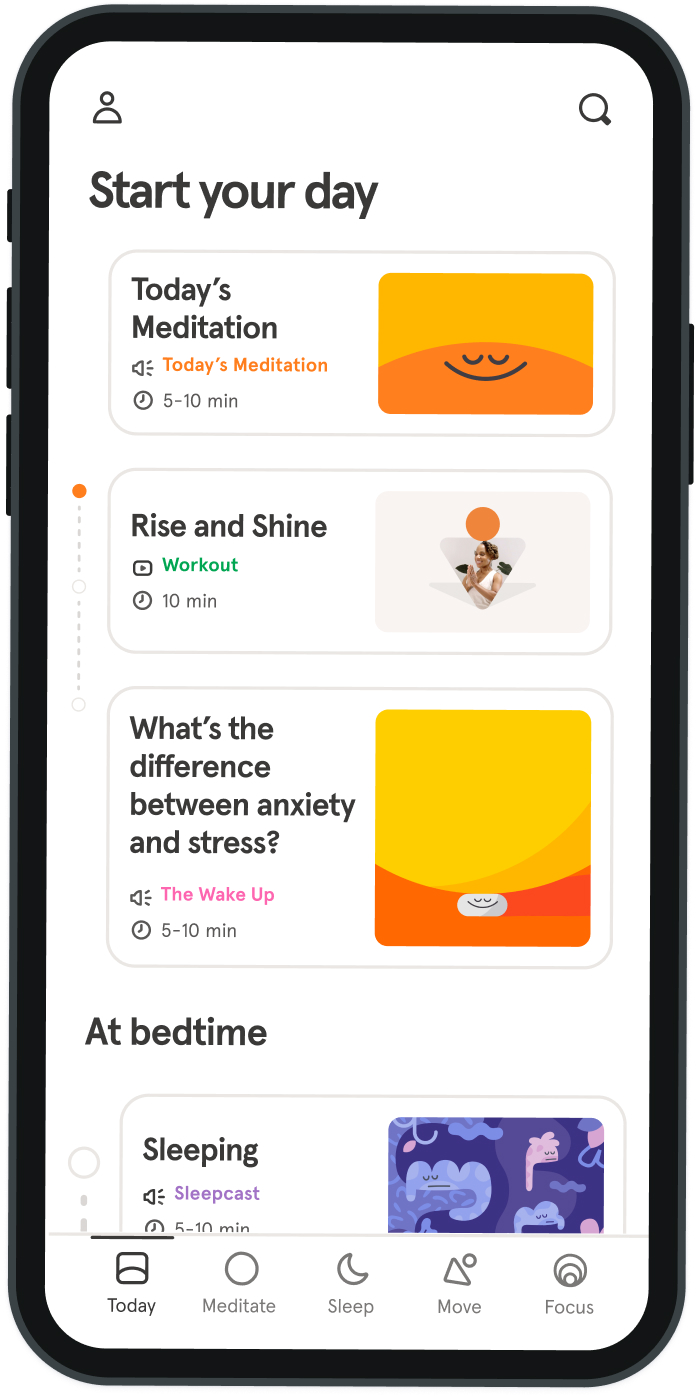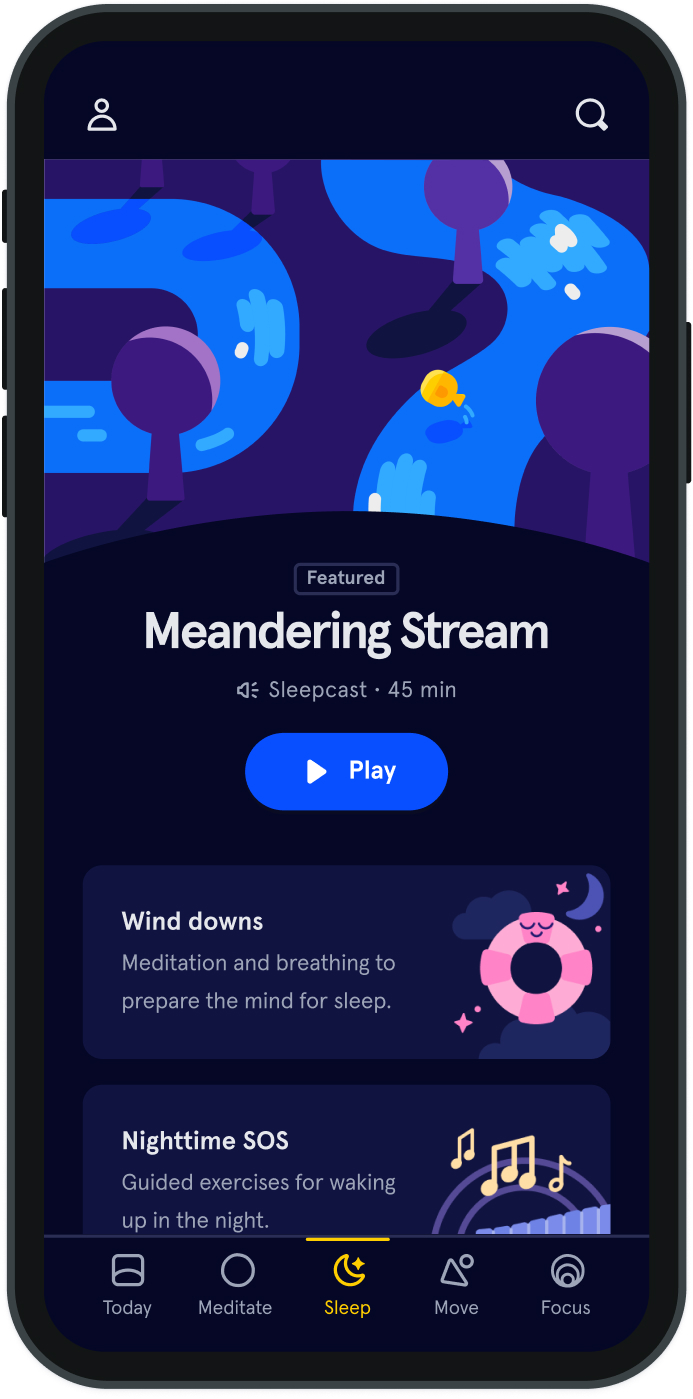Speaking of mindfulness...
One of the things I didn’t expect when I took the job at Headspace was the amount of public speaking I’d have to do. Until recently, most of my talks had been to small groups. But a couple of weeks ago I gave a keynote speech on mindfulness to an audience of 4000 people. It was by far the largest audience I’d ever spoken to, and involved me pacing about on my own on an enormous stage with a microphone clamped to my face(!)
My colleagues watched the live stream on the internet, and afterwards commented to me that I hadn’t seemed very nervous. And in truth I hadn’t been. Why? Well, immediately before taking the stage, I listened to day 10 of Take10, and then did Amy Cuddy’s Power Pose (see below). And I was genuinely surprised about how little fear I felt on stage. I even ended up enjoying the whole thing quite a lot. Which got me to thinking about the fear of public speaking, where it comes from, and why these simple things had made such a difference. Fear of public speaking – also known as speech anxiety or glossophobia – has several simple but powerful causes. Olivia Mitchell gives a great explanation on her website about where this fear comes from in our brains. Very simply, it boils down to 3 distinct fears: 1. If I’m not part of a social group, I’ll die. And if I don’t impress these people they’ll kick me out of the social group 2. I’ve been in a (vaguely) similar situation before and something happened that really left an emotional scar 3. I absolutely have to perform well here otherwise...
Cognitive Behavioural Therapy (CBT) has been shown to work very well for anxiety. The technique centres around identifying what psychologists call ‘unworkable’ thoughts, usually containing tell-tale keywords, and substituting more appropriate self-talk. But mindfulness combats fear and anxiety in a different way. With mindfulness, we’re not judging ourselves or our thoughts, and we’re not trying to intercept the ‘bad’ ones and superimpose the ‘good’ ones. Just like in the animation with the cars on the road, we’re simply noticing their passage. And when we do that, our amygdala pipes down, our Fear/Fight/Flight response recedes, and we regain control of our faculties. It’s that old tug-of-war thing again! The other thing I did just before I went on stage was the Power Pose. In a TED talk by Amy Cuddy, a social psychologist, she explains that the mind/body link is so strong that not only does the mind influence the body, but the body also influences the mind. So by adopting an innate bodily position associated with success or victory, your brain responds accordingly, and your level of testosterone (key to performance and libido!) goes up 20% in just 2 minutes. At the same time, the level of cortisol (the horrible stress hormone), reduces by 25%. And, as Amy illustrates with some experiments she did in her lab, in evaluative ‘social threat’ situations, such as an interview or a public speaking event you’ll perform better. So, before I went on stage to give my talk, I disengaged my Fear/Fight/Flight response, I put myself in the mindset to appreciate the moment, and I boosted my confidence. And all it took was 10 minutes of mindfulness and winning the Olympic 100m sprint! Dr David Cox
Cognitive Behavioural Therapy (CBT) has been shown to work very well for anxiety. The technique centres around identifying what psychologists call ‘unworkable’ thoughts, usually containing tell-tale keywords, and substituting more appropriate self-talk. But mindfulness combats fear and anxiety in a different way. With mindfulness, we’re not judging ourselves or our thoughts, and we’re not trying to intercept the ‘bad’ ones and superimpose the ‘good’ ones. Just like in the animation with the cars on the road, we’re simply noticing their passage. And when we do that, our amygdala pipes down, our Fear/Fight/Flight response recedes, and we regain control of our faculties. It’s that old tug-of-war thing again! The other thing I did just before I went on stage was the Power Pose. In a TED talk by Amy Cuddy, a social psychologist, she explains that the mind/body link is so strong that not only does the mind influence the body, but the body also influences the mind. So by adopting an innate bodily position associated with success or victory, your brain responds accordingly, and your level of testosterone (key to performance and libido!) goes up 20% in just 2 minutes. At the same time, the level of cortisol (the horrible stress hormone), reduces by 25%. And, as Amy illustrates with some experiments she did in her lab, in evaluative ‘social threat’ situations, such as an interview or a public speaking event you’ll perform better. So, before I went on stage to give my talk, I disengaged my Fear/Fight/Flight response, I put myself in the mindset to appreciate the moment, and I boosted my confidence. And all it took was 10 minutes of mindfulness and winning the Olympic 100m sprint!

With mindfulness, we’re not judging ourselves or our thoughts, and we’re not trying to intercept the ‘bad’ ones and superimpose the ‘good’ ones.
Dr. David Cox


Be kind to your mind
- Access the full library of 500+ meditations on everything from stress, to resilience, to compassion
- Put your mind to bed with sleep sounds, music, and wind-down exercises
- Make mindfulness a part of your daily routine with tension-releasing workouts, relaxing yoga, Focus music playlists, and more
Meditation and mindfulness for any mind, any mood, any goal

Stay in the loop
Be the first to get updates on our latest content, special offers, and new features.
By signing up, you’re agreeing to receive marketing emails from Headspace. You can unsubscribe at any time. For more details, check out our Privacy Policy.
- © 2025 Headspace Inc.
- Terms & conditions
- Privacy policy
- Consumer Health Data
- Your privacy choices
- CA Privacy Notice
